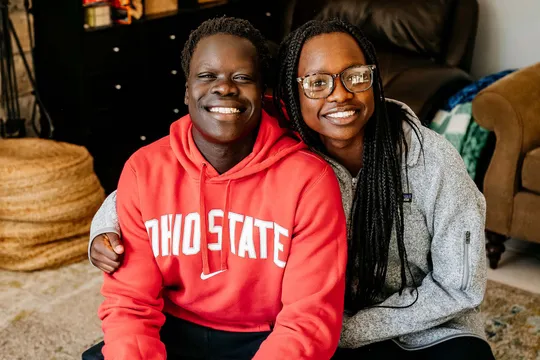1 of 5 / Toddler Milestones
View All
13 Months: Separation Anxiety
Separation anxiety when a child becomes fearful and nervous when away from home or separated from a loved one.
Sleep and Naps
Children and adolescents need at least 9 hours of sleep every night.
Biting
Many children between ages 1 and 3 go through a biting phase, which they eventually outgrow.
Tantrums
Temper tantrums can erupt months before your child's 2nd birthday, and they can be quite a spectacle.
2 of 5 / Child Development
View All
Your Child at 2
This is the time when your little one's character starts to take shape and they blossom into their own person.
Your Child at 3
At around age 3, children’s imaginations and language skills seem to get supercharged.
Your Child at 4
Your 3- to 4-year-old child will continue to grow and develop in many ways in the coming year.
Your Child at 5
Your child is growing up. Have you noticed that your 4- to 5-year-old is becoming more independent and self-confident?
3 of 5 / Behavior & Discipline
View All
Are There Benefits of Behavior Charts for Children?
See how a behavior chart is a positive reinforcement tool to track and encourage desired behavior in children.
How to Prevent Temper Tantrums
Anyone who has had a child, or been around one, has probably seen the dreaded temper tantrum.
What Is a Calm-Down Corner?
Learn all about the benefits of a calm-down corner and how to make your own.
Discipline for Teens
The teen years can bring some of the toughest discipline challenges parents have to face.
4 of 5 / Child Safety
View All
Keeping Your Baby or Toddler Safe
The following tips should help you keep your baby out of harm's way from birth through their toddler years.
What to Know About Trampoline Safety for Children
Trampolines are fun, but they can also be dangerous. Learn all about trampoline safety for children.
How to Keep Kids Safe on Bikes
Learn about ways to keep kids safe on bikes, including bike safety tips, common bike injuries, and more.
How to Talk to Your Kids About Social Media
Proven step-by-step instructions for how to talk to your kids about social media.
5 of 5 / Healthy Habits
View All
Suggested Reads about Health & Parenting
What Do Your Health Habits Teach Your Kids?
Kids learn their health habits by watching you. Find out how your food, exercise, and other choices rub off on them.
How Healthy Are Your Celebration Traditions?
Does your family’s health take a backseat during special occasions? Find out the facts from WebMD about your favorite traditions and celebrations.
Overscheduled Kids Quiz
Do your kids do too much? Take this WebMD quiz to see if your kids are overscheduled and stressed out.
Health Dos and Don’ts of Buying Used
You can get good deals on some things, but secondhand is not always the way to go. Find out when thrifting is fine and when buying new is a better idea.
8 million+ Physician Ratings & Reviews
Find Doctors and Dentists Near You
You can also search by physician, practice, or hospital name
Related Links
- Pregnancy Home
- Pregnancy News
- Pregnancy Medical Reference
- Getting Pregnant
- First Trimester
- Second Trimester
- Third Trimester
- Labor & Delivery
- Pregnancy Complications
- Ovulation Calculator
- Pregnancy Timeline
- Pregnancy Related Topics
- Baby Home
- Baby News
- Baby Medical Reference
- Toddler Milestones
- Child Development
- Child Safety
- Children's Health
- Children's Vaccines
- Parenting Home
- Parenting News
- Find a Pediatrician
- More Parenting Topics
